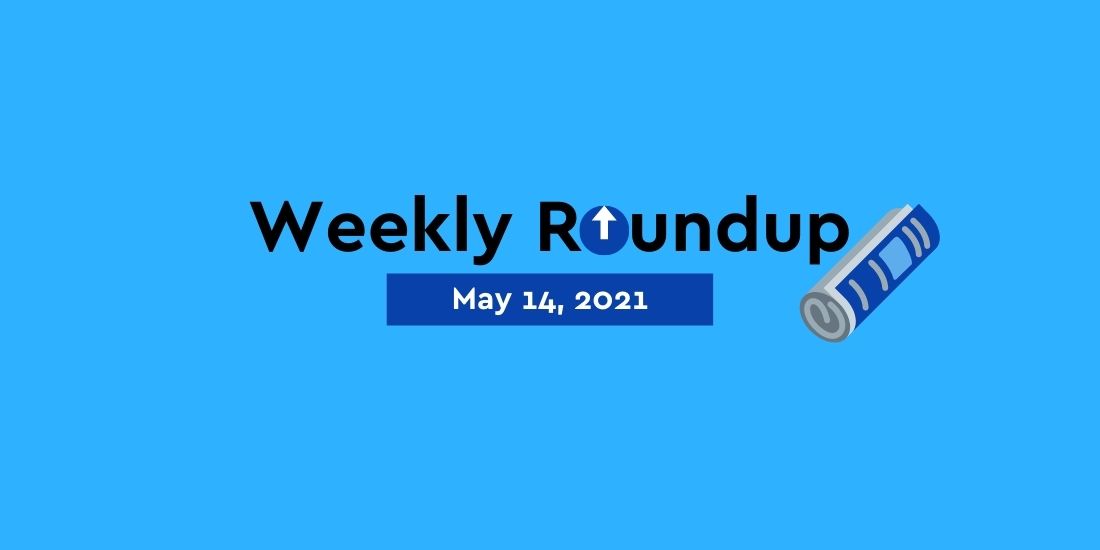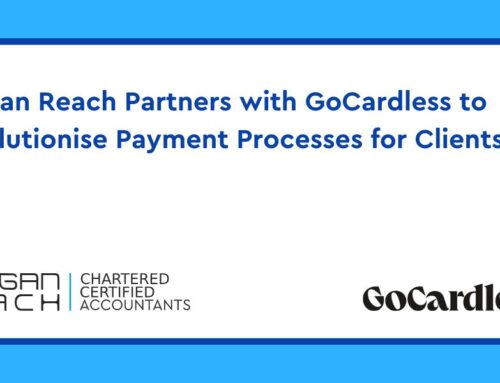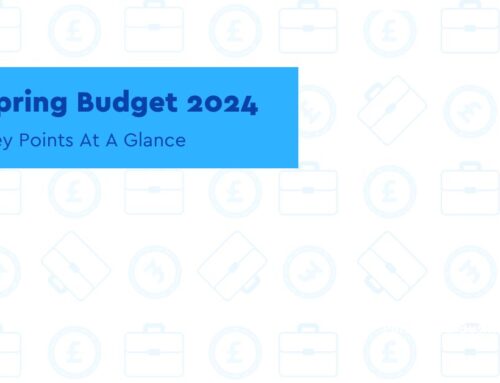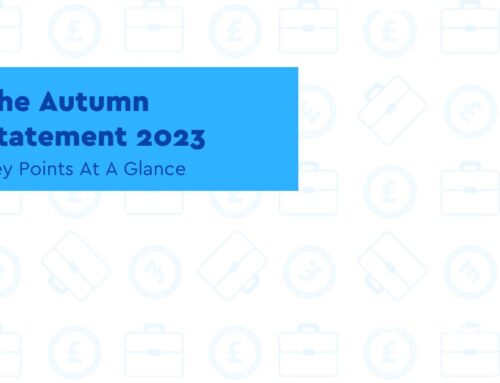Coronavirus Statutory Sick Pay Rebate Scheme

Key Points
- The scheme will repay employers the SSP paid to current or former employees
- The scheme covers all types of employment contracts
- The repayment will cover up to 2 weeks SSP starting from the first qualifying day of sickness
If you’re a small or medium employer with under 250 employees, you may also be eligible for the Coronavirus (COVID-19) Statutory Sick Pay Rebate Scheme.
The scheme will repay employers the Statutory Sick Pay paid to current or former employees. You can claim back up to 2 weeks of SSP if:
- You have already paid your employee’s sick pay (use the SSP calculator to work out how much to pay)
- You’re claiming for an employee who’s eligible for sick pay due to coronavirus
- You have a PAYE payroll scheme that was created and started on or before 28 February 2020
- You had fewer than 250 employees on February 28, 2020 across all your PAYE payroll schemes
To qualify, an employee must earn an average of at least £120 p/w in the tax year 2020/21 – the lower earnings limit for class 1 national insurance.
The scheme covers all types of employment contracts, including full-time employees, part-time employees, employees on agency contracts, employees on flexible or zero-hour contracts and fixed term contracts (until the date their contract ends).
You can claim back from both the Coronavirus Job Retention Scheme and the Coronavirus Statutory Sick Pay Rebate Scheme for the same employee but not for the same period of time.
Employees who have transferred under the Transfer of Undertakings (Protection of Employment) Regulations 2006 (TUPE)
You can make a claim for SSP paid due to coronavirus to employees who have been transferred to you under TUPE if you had:
- A PAYE scheme that was created and started on or before 28 February 2020
- Fewer than 250 employees (including TUPE transferred employees) across all PAYE payroll schemes on 28 February 2020
If you did not have a PAYE scheme that was created on or before 28 February 2020, but the previous employer did, you can make a claim if they had fewer than 250 employees across all their PAYE schemes on that date.
As the new employer, you can only make claims for SSP that you have paid, a claim cannot include SSP paid by the previous employer.
What you can claim
The repayment will cover up to 2 weeks SSP starting from the first qualifying day of sickness, if an employee is unable to work because they:
- Have coronavirus symptoms
- Are self-isolating because someone they live with has symptoms
- Are self-isolating because they’ve been notified by the NHS or public health bodies that they’ve come into contact with someone with coronavirus
- Have been advised by letter to shield because they’re clinically extremely vulnerable and at very high risk of severe illness from coronavirus
- Have been notified by the NHS to self-isolate before surgery for up to 14 days
- You can make more than one claim per employee, but you cannot claim for more than 2 weeks in total
4th SEISS grant claims service open until June
Key Points
- The fourth SEISS grant takes into account the 2019-20 tax return
- Individuals who started self-employment for the first time in 2019/20 may be eligible
The online claims service for the fourth grant of the Self-Employment Income Support Scheme (SEISS) is open to all eligible individuals until June 1, 2021.
HMRC began contacting eligible individuals last month regarding their personal claim date. The fourth SEISS grant takes into account the 2019-20 tax return, reflecting the most recently available data on a customer’s business profits.
This means that eligible individuals who received previous grants may find that the amount of the fourth grant is higher or lower than past SEISS payments. The grant calculation is based on an average of the 2016-17, 2017-18, 2018-19 and 2019-20 tax returns, where this information is available.
There is a very small number of individuals where HMRC may not use the 2019-20 tax return in the calculation of the fourth SEISS grant; for example, when considering some people who inform HMRC they are new parents, and those with a loan charge.
Individuals who claimed at least one of the first three SEISS grants, but are not eligible for the fourth grant, should have received an email from HMRC in mid-April.
Once an individual has viewed their reasons for ineligibility through the online claims service, they should consider whether it is accurate and applicable to their circumstances.
If, after consideration, an individual believes the ineligibility reasons are incorrect, they will need to select the ‘If you don’t agree’ option. This will present them with two ways to begin their review; the coronavirus helpline number (0800 024 1222) and a webchat service. The outcome will be communicated by letter, which HMRC aim to send within 10 working days of receiving the review. It is likely that HMRC will request evidence during the review process.
For any individuals who are no longer eligible for the SEISS grant, they may be eligible for other UK Government support, including: Restart Grants, the Recovery Loan scheme, business rates relief and other business support schemes. More details can be found on GOV.UK.
NICs payment rules for company directors
Key Points
- NICs are calculated annually for company directors
- They pay NI on annual income from salary and bonuses over £9,568
HMRC has updated the guidance in the National Insurance for company directors booklet (CA44) for 2021 to 2022 on how to work out NIC payments for directors.
Directors have to use an annual (or pro rata annual) earnings period to work out their liability for Class 1 NICs. This figure has to include all the director’s earnings when working out NICs, including fees and bonuses.
Directors are classed as employees and pay National Insurance on annual income from salary and bonuses over £9,568.
The earnings period for the assessment of directors’ NICs remains an annual one. But, subject to the qualifying conditions, directors can make payments on account of directors’ NICs during the tax year based on the actual intervals of payment – usually weekly or monthly – in the same way as for other employees.
Payment of a director’s personal bills through an account with the company
Directors who have an account with their company may arrange for the company to settle their personal bills and then charge the amount to their account. If you meet a director’s personal debt in this way and then debit the amount to the account, there is liability for NICs when the:
- Account becomes overdrawn or there is an increase in the amount by which it is overdrawn;
- Debiting is made in anticipation of an earnings payment, for example, fees or bonuses
NICs are due on the overdrawn amount or the increase in the overdrawn amount. Use the NICs rates and the earnings period which apply when the account is debited.
There is no liability for NICs if the:
- Account becomes overdrawn or there is an increase in the amount by which it is overdrawn;
- Debit is made in anticipation of an introduction of funds which are not earnings, for example dividends, matured insurance policies or other personal income.
You can find information here about paying National Insurance contributions (NICs) for company directors in current and previous tax years.
HMRC advises businesses importing goods from Europe

Key Points
- Traders have 2 choices when making import declarations for goods in 2021
- They can make a full declaration as the goods arrive or delay their declarations
HMRC is offering advice to traders in Great Britain on how to submit their delayed customs import declarations for non-controlled goods imported from the EU.
The government department that is responsible for customs and tax processes, has written to more than 200,000 traders with top tips for how to be ready to make delayed import declarations, and how they can access further support.
For imports of most goods from the EU made during 2021, traders have 2 choices when making import declarations. Either make a full declaration as the goods arrive into Great Britain or delay their declarations.
If businesses have delayed their declarations, it’s important they:
- Keep an accurate record of what they are importing every time their goods arrive in Great Britain, including the date and time of the import, a written description of the goods and the associated commodity code. This is a legal requirement
- Send HMRC their supplementary declaration within 175 days of the date the goods arrived in Great Britain. For example, if they imported goods on January 1, 2021, they need to complete their supplementary declaration by June 25, 2021
HMRC also recommends that traders:
- Appoint a customs intermediary – information on how to get someone to deal with customs paperwork on their behalf, as well as an up to date list of customs intermediaries and their capacity, can be found on GOV.UK
- Check if they can claim zero tariffs for their imported goods – if they import goods from the EU that originate in the EU, they will be able to claim zero tariffs if the goods meet the rules of origin requirements. This means that they will not need to pay customs duty, but they will still need to pay VAT where applicable
As a reminder, applications for the £2,000 SME Brexit Support Fund to help with training or professional advice closes on June 30, 2021.
Traders can also access a selection of support packs and checklists to assist with the new rules from this year for importing and exporting goods into their business, plus updated guides to understand the new customs and VAT requirements when moving goods between the UK and EU countries.
Weekly HMRC, Gov’t and tax updates
Annual allowance calculator
HMRC has amended the annual allowance calculator to include tax year 2021-2022.
Any members of defined contribution schemes who make their total contributions early in the tax year can now work out their annual allowance tax charge. Other members can use the annual allowance calculator after the end of the tax year when they know what their total pension savings will be.
You can use this calculator if you are a member of a UK Registered pension scheme or qualifying overseas pension scheme but not if you are a member of a hybrid scheme.
Get your business ready for the Plastic Packaging Tax
HMRC has published guidance on the new plastic packaging tax, due to come into force on April 1, 2022.
The new tax will apply at a rate of £200 per metric tonne to plastic packaging manufactured in, or imported into, the UK where the proportion of recycled plastic used in its manufacture is less than 30% of the total amount of plastic by weight. The new guidance outlines how the tax will operate, how to check if you will need to register and pay the tax plus record-keeping requirements and further support. Read the guidance in full.
UK house prices hit new record high after growing at fastest rate in five years
Average house prices in April reached a new record high of £258,204, an annual increase of 8.2 per cent and a monthly rise of 1.4 per cent.
Almost £20,000 has been added to the value of the average home since April last year, according to the latest Halifax House Price Index.
“The stamp duty holiday continues to add impetus to an extremely active market, magnifying the current shortage of available homes as buyers aim to take advantage of the Government scheme,” said Halifax managing director Russell Galley.
“The influence of the stamp duty holiday will fade gradually over the coming months as it’s tapered out but low stock levels, low interest rates and continued demand is likely to continue to underpin prices in the market.”
Get In Touch
At Morgan Reach, we understand every business needs a little help now and again-especially when it comes to the financial side of things. Therefore, to help our clients and visitors we endeavour to cover as much of the business news as possible. If you are self-employed or run a business and need assistance and advice on how these news could make a difference to you or your business, feel free to get in touch with the experts at Morgan Reach. Our business growth experts at Morgan Reach will guide you through what support is available for you or your business as well as the latest news that may affect you.







